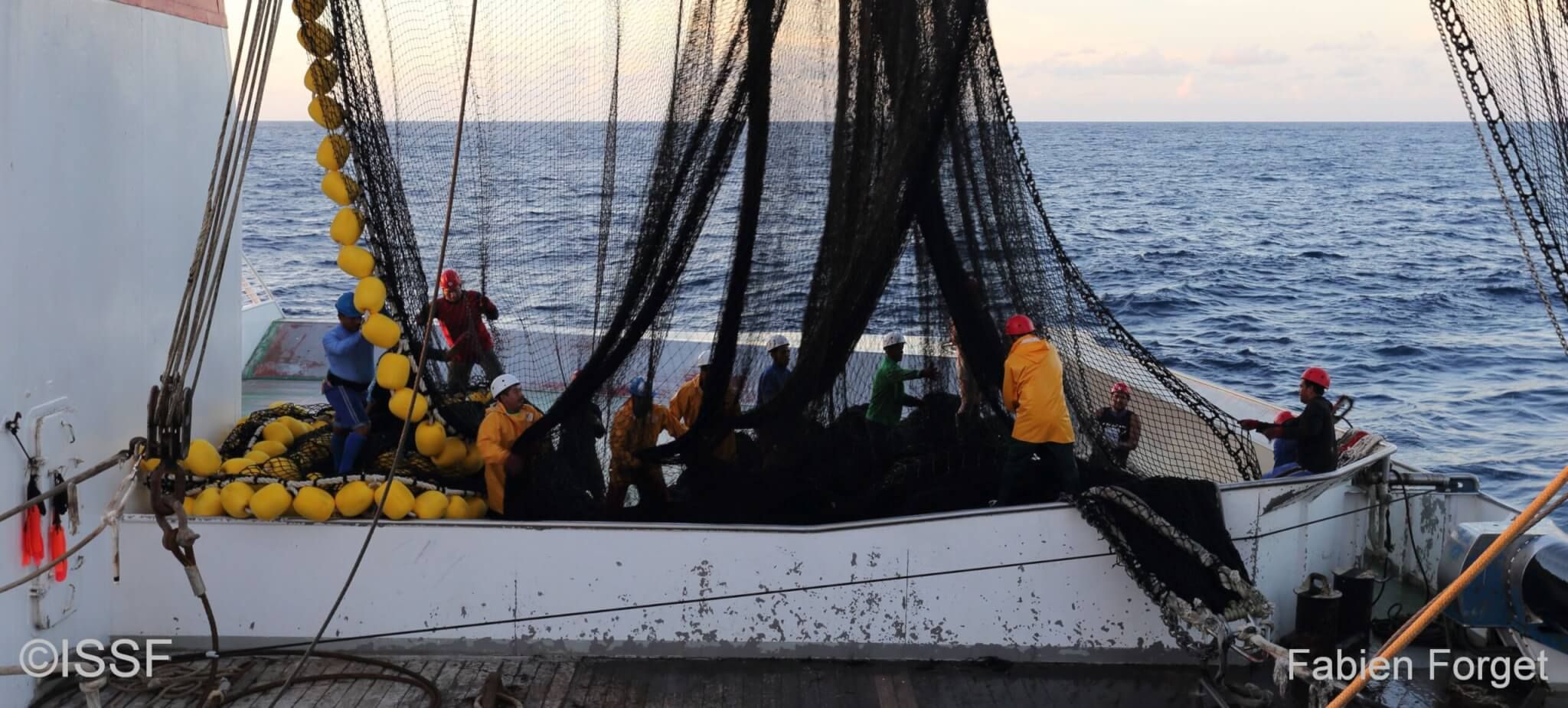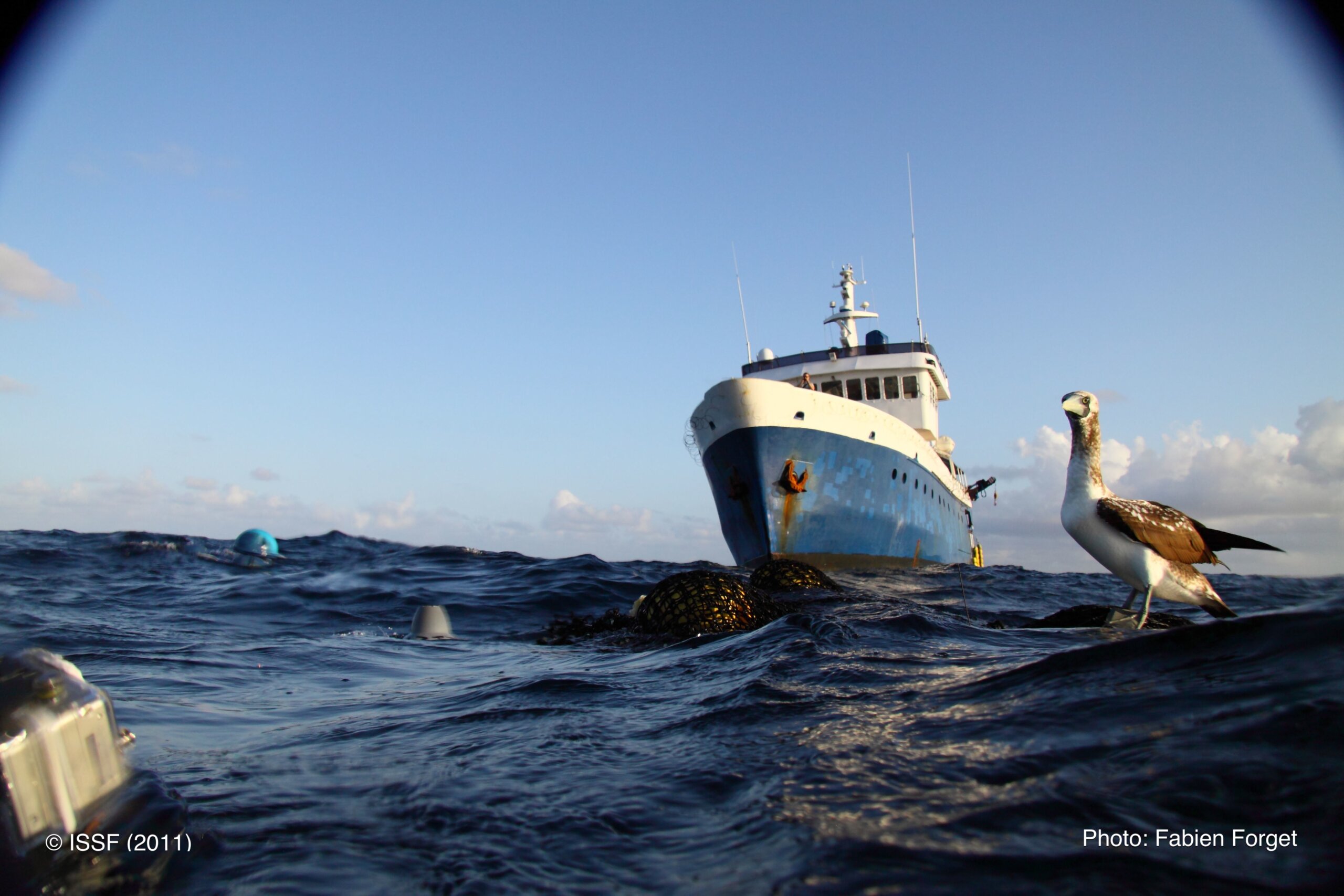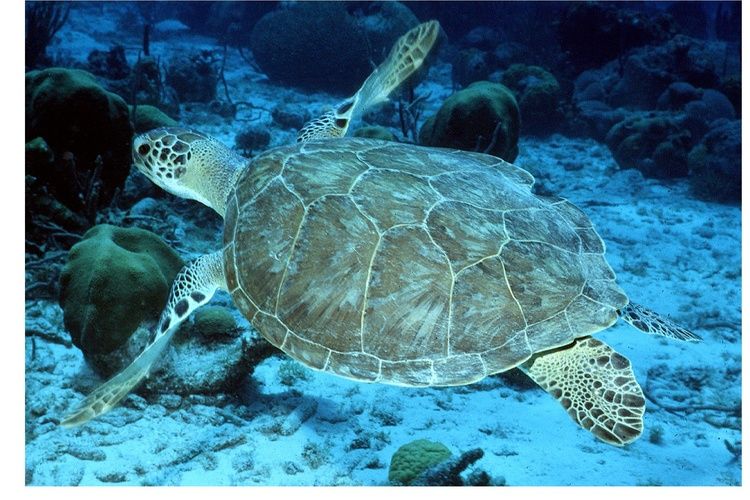
ISSF Urges ICCAT to Adopt Stronger Tuna Conservation Measures, Bolster Compliance, and Clarify FAD Regulations
The International Seafood Sustainability Foundation (ISSF) is outlining its priorities for improved Atlantic Ocean tuna fisheries management ahead of the November 13-20, 2023, annual meeting of the International Commission for the Conservation of Atlantic Tunas (ICCAT).
ISSF’s ICCAT position statement leads with a call for improved compliance processes and continues on to address tuna stock conservation; FAD management; electronic monitoring and reporting & observer coverage; transshipment regulation; effective management procedures (harvest strategies); bycatch mitigation & shark protections; and capacity management.
“It is imperative that ICCAT adopt a strengthened tropical tuna measure that maintains bigeye and yellowfin stocks at sustainable levels and addresses management of FADs, especially requirements for fully non-entangling and biodegradable FADs,” said ISSF President Susan Jackson. “Adopting these measures without a strong mechanism to ensure compliance with ICCAT rules, however, is only part of the equation.”
“While ICCAT has one of the most open compliance assessment processes among the five tuna RFMOs, with a well-designed framework,” Jackson continued, “there remains room for improvement. We have been working with Pew Charitable Trusts to identify compliance reform priorities for tuna RFMOs, and our position statement includes several of those recommendations. Beyond tropical tuna management and compliance, we’re asking ICCAT to conduct a yellowfin assessment in 2024, adopt minimum standards for electronic monitoring, and ensure greater protections for Atlantic shark stocks, among other needed actions.”
Priorities for Atlantic Ocean Tuna Fisheries
ICCAT’s 24th annual meeting has a hybrid format for participants and will be conducted both virtually and in person in New Cairo, Egypt. ISSF’s position statement, which can be downloaded in English, French, and Spanish, shares these and other recommendations with ICCAT:
Compliance Processes
- Adopt a workplan for the ICCAT Compliance Committee to develop audit points for management measures
- Use the schedule of compliance issues and corresponding actions for the review of CPC compliance
- Adopt procedures to identify and address non-compliance with total allowable catch (TAC) allocations
Tuna Stock Conservation
- Adopt a new recommendation for tropical tuna conservation and management that ensures bigeye and yellowfin stocks are maintained at sustainable levels in accordance with the ICCAT Standing Committee on Research and Statistics (SCRS) advice and fully allocates the total allowable catch (TAC) between member states, especially for yellowfin.
- Request the SCRS to carry out a yellowfin assessment in 2024.
FAD Management
- Clarify that fish aggregating devices (FADs) must be fully non-entangling, or without any netting or meshed materials.
- Adopt the definition of “biodegradable” categories consistent with those of the Inter-American Tropical Tuna Commission (IATTC) and the Western and Central Pacific Fisheries Commission (WCPFC), and establish a timeline for transition to biodegradable FADs similar to what was agreed in the IATTC.
Electronic Monitoring and Reporting and Observer Coverage
- Adopt the Electronic Monitoring (EM) Minimum Standards developed by the Electronic Monitoring Systems Working Group
- Direct the Working Group on Integrated Monitoring Measures to develop an ICCAT Regional Observer Program for recommendation to the Commission.
Transshipment Regulations
- Strengthen the regulation of at-sea transshipment in line with best practice standards, including requiring:
- near real-time electronic reporting for all transshipment activity
- that carrier vessels only to be flagged to member states
- that AIS data are reported in addition to required VMS data
Effective Management Procedures (Harvest Strategies)
- Adopt the harvest strategy for western Atlantic skipjack recommended by SCRS.
Bycatch Mitigation & Shark Protections
- Require all sharks be landed with fins naturally attached without exceptions.
- Reduce the TACs for both blue shark stocks to levels that will ensure a high probability that the stocks will remain in a healthy state in line with SCRS advice, and allocate the TACs by member state.
- Implement the SCRS advice on catch limits for shortfin mako stocks.
- Request the SCRS to review science-based mitigation techniques for seabird bycatch to align to best practice in 2024.


